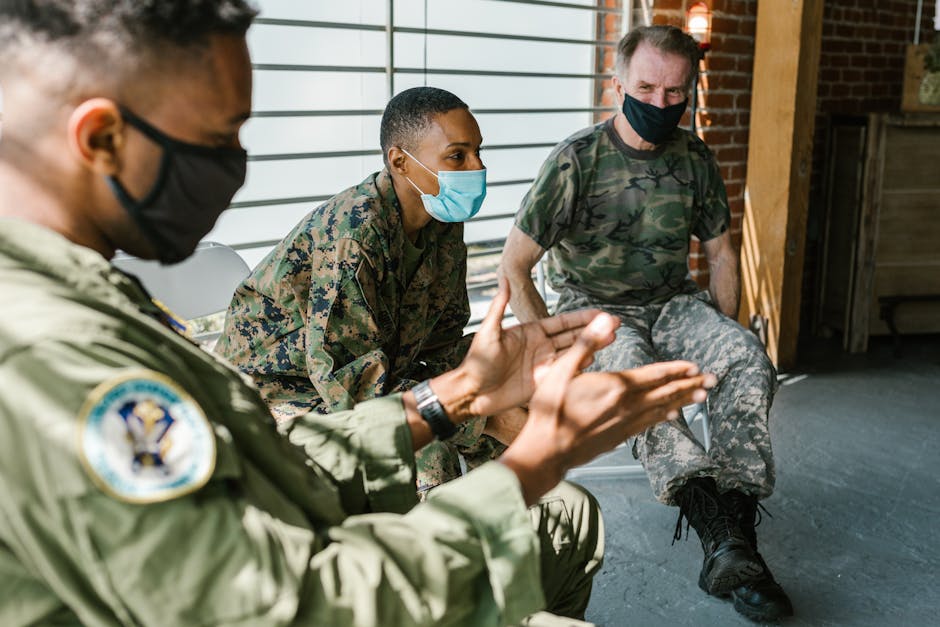The Role of Peer Mentoring in Mental Health Recovery
Welcome to our exploration of the invaluable role that peer mentoring plays in mental health recovery! Whether you’re personally on a journey to recovery or supporting someone who is, understanding how peer mentors can make a difference is crucial. Let’s dive into the benefits, mechanisms, and real-life impacts of peer mentoring in mental health.
Table of Contents
1. What is Peer Mentoring? ?
2. How Peer Mentoring Works in Mental Health Recovery ?
3. Benefits of Peer Mentoring ?
4. Real-Life Success Stories ?
5. Conclusion: The Ripple Effect of Peer Mentoring ?
6. FAQ Section ?
What is Peer Mentoring? ?
Peer mentoring involves individuals with lived experience of mental health challenges supporting others who are on similar paths. This relationship is based on mutual understanding, trust, and shared experiences, creating a unique and supportive environment for recovery.
How Peer Mentoring Works in Mental Health Recovery ?
Peer mentors typically engage in supportive conversations, provide guidance, and share coping strategies. The goal is to create a safe space where mentees feel heard and understood, fostering a sense of belonging and hope. This process is often informal and can occur in various settings, from support groups to one-on-one meetings.
Benefits of Peer Mentoring ?
Peer mentoring offers numerous benefits for both mentors and mentees:
1. Emotional Support: Knowing someone else has walked a similar path can be incredibly comforting.
2. Increased Hope: Seeing a mentor who has successfully navigated recovery can inspire optimism and determination.
3. Enhanced Self-Esteem: Mentors often experience a boost in self-esteem as they help others, while mentees gain confidence through support and validation.
4. Reduced Stigma: Sharing experiences reduces the stigma associated with mental health issues, fostering a more open and understanding community.
Real-Life Success Stories ?
Consider Sarah, who struggled with depression and found solace in her peer mentor, Jake. Jake’s understanding and encouragement helped Sarah develop new coping strategies and regain her confidence. Today, Sarah is not only thriving but also mentoring others!
Conclusion: The Ripple Effect of Peer Mentoring ?
The impact of peer mentoring in mental health recovery is profound and far-reaching. It’s a testament to the power of shared experiences and genuine human connection. As more people embrace this supportive model, the potential for positive outcomes and a more compassionate society grows.
FAQ Section ?
Q1: How can I find a peer mentor?
A: Many mental health organizations offer peer mentoring programs. You can start by reaching out to local support groups or mental health services in your area.
Q2: What qualifications do peer mentors need?
A: The primary qualification is lived experience with mental health challenges. Many programs provide additional training to equip mentors with effective communication and support skills.
Q3: Can peer mentoring replace professional therapy?
A: Peer mentoring complements, but does not replace, professional therapy. It offers unique benefits through shared experiences, but clinical treatment remains essential for comprehensive mental health recovery.
Q4: Is peer mentoring effective for all types of mental health issues?
A: While peer mentoring can be beneficial for a wide range of mental health challenges, its effectiveness may vary based on individual needs and circumstances. It’s important to consider it as one part of a broader support system.
Thank you for joining us on this journey through the role of peer mentoring in mental health recovery. We hope you found the insights and stories shared here both informative and inspiring! ?
For more information please click here
James Donaldson is a Washington State University graduate (’79). After an outstanding basketball career with WSU, he went on to play professional basketball in the NBA with the Seattle Supersonics, San Diego/L.A. Clippers, Dallas Mavericks, New York Knicks, and Utah Jazz. He also played for several teams in the European Leagues in Spain, Italy, and Greece, and he toured with The Harlem Globetrotters to wrap up his career. James was an NBA All-Star in 1988 while playing center for the Dallas Mavericks. In 2006, James was inducted into the Pac-10 Sports Hall of Fame and also the Washington State University Athletic Hall of Fame. In 2010, James was elected as a board member for the NBA Retired Players Association.
James frequently conducts speaking engagements (motivational, inspirational, educational) for organizations, schools, and youth groups.
In 2010, James was the recipient of the NBA Legends of Basketball ABC Award, awarded for outstanding contributions in Athletics–Business–Community.
He believes in being a role model for success and professionalism to the scores of young people to whom he devotes so much of his time. He currently serves on several boards and committees and is a member of many organizations.
James believes in developing relationships that create a “Win-Win” environment for everyone involved, and in being the best he can be!
For more information about James Donaldson or to request he speak at your event, contact him at:
www.StandingAboveTheCrowd.com
[email protected]
1-800-745-3161 (voicemail & fax)
James Donaldson is the author of “Standing Above The Crowd” and “Celebrating Your Gift of Life” and founder of the Your Gift of Life Foundation which focuses on mental health awareness and suicide prevention, especially pertaining to our school aged children and men.
If you’re interested in having James come and speak to your group of young adults, business entrepreneurs, aspiring political and community leaders, and athletic teams, please contact him at [email protected] and or leave a personal message for him at 1-800-745-3161. Keep up with him and read about how he is reaching out and making a difference in the lives of so many around the world at www.yourgiftoflife.org




